Quite the best thing opening this week – and possibly the best thing playing – is James Gray’s The Immigrant. Here is a film that reason dictates ought to have been released during awards season that we’re getting in the middle of the summer. The why of this may lie in the fact that Gray dug in his heels and wouldn’t allow Harvey Weinstein to recut the movie. There’s no denying that Weinstein is capricious enough to punish an uppity filmmaker like this, even at the expense of the movie. However, it’s just as likely that The Immigrant‘s lack of that “art film with a feel good vibe” caused Weinstein to write it off as Oscar bait. The King’s Speech this ain’t.
The Immigrant may make you feel, but it has no interest at all in making you feel good, despite the fact that it is ultimately a tale of hard-won redemption at a heavy price. It is also beautiful filmmaking with complex performances from Marion Cotillard, Joaquin Phoenix and Jeremy Renner. But, yes, it is a devastating experience.
That the film takes its name from a 1917 Charlie Chaplin short is by no means accidental. Both films address the immigrant experience at roughly the same time. (Gray’s film is set in 1921.) And both cast a jaundiced eye at the promise of a glorious new life in America. In Chaplin’s film, Charlie looks at the way he and his fellow passengers are herded together like cattle and in response gives the Statue of Liberty a contemptuous look. In Gray’s film, the ship arrives with the statue’s back toward its passengers. This may also account for the fact that in many ways, Gray’s The Immigrant is a startlingly old-fashioned movie, possibly a little too much so. (Its notions of a “ta-ra-ra-boom-de-ay” nightclub show feels more turn of the century than 1921, though this may be a deliberate comment on the stuck in time nature of the ghetto in which much of the film takes place.) At bottom, The Immigrant is nothing more, nor less, than a richly melodramatic fable about the American dream as not just an illusion, but a nightmare, a nightmare specifically created for the film’s heroine, Ewa Cybulska (Cotillard). It’s a nightmare in which the disenfranchised are victimized by the only slightly less disenfranchised.
The Immigrant begins with sisters Ewa and Magda (Angela Sarafyan) arriving at Ellis Island. Both know that Magda is ill, but they hope to squeak by. No such luck. Magda is slapped into quarantine, and Ewa is detained for probable deportation out of allegations of bad moral character. (It is only very late in the film that we learn the source of these claims.) Enter Bruno Weiss (Phoenix), a first generation American, closeted Jew (he pretends he gets on in the Jewish neighborhood because he speaks Yiddish) and small time promoter, who presents himself to Ewa as a charity worker. Of course, what he really is is a pimp, who is preying on Ewa’s plight. And naive as she is, even Ewa quickly realizes that he wants her for more than sewing and possibly appearing at his sleazy Lower East Side theater. Struggle though she tries, it quickly becomes obvious that Bruno is her only hope for making enough money to get Magda released from Ellis Island.
This is – or could be – hoary melodrama of the oldest kind, but don’t mistake the film for anything so simplistic. The relationship between Ewa and Bruno is far more complex, maybe even more twisted, than that of victim and victimizer. And it becomes even more tangled with the arrival of Bruno’s stage magician cousin, Emil (Renner), who sets his sights on Ewa for reasons of his own. What follows never allows itself not to be melodrama, and I think this is actually in the film’s favor, making it all the more compelling. But there’s such a richness of character and detail here that it’s a mistake to reduce The Immigrant to any one quality. Its ability to create a single, perfectly developed atmosphere is remarkable. The performances, though sometimes mannered, are all believable. And the film’s final shot can join the short list of the truly great ending images. No, The Immigrant isn’t a lot fun, but it’s touched with a kind of greatness we don’t see very often. Rated R for sexual content, nudity and some language.



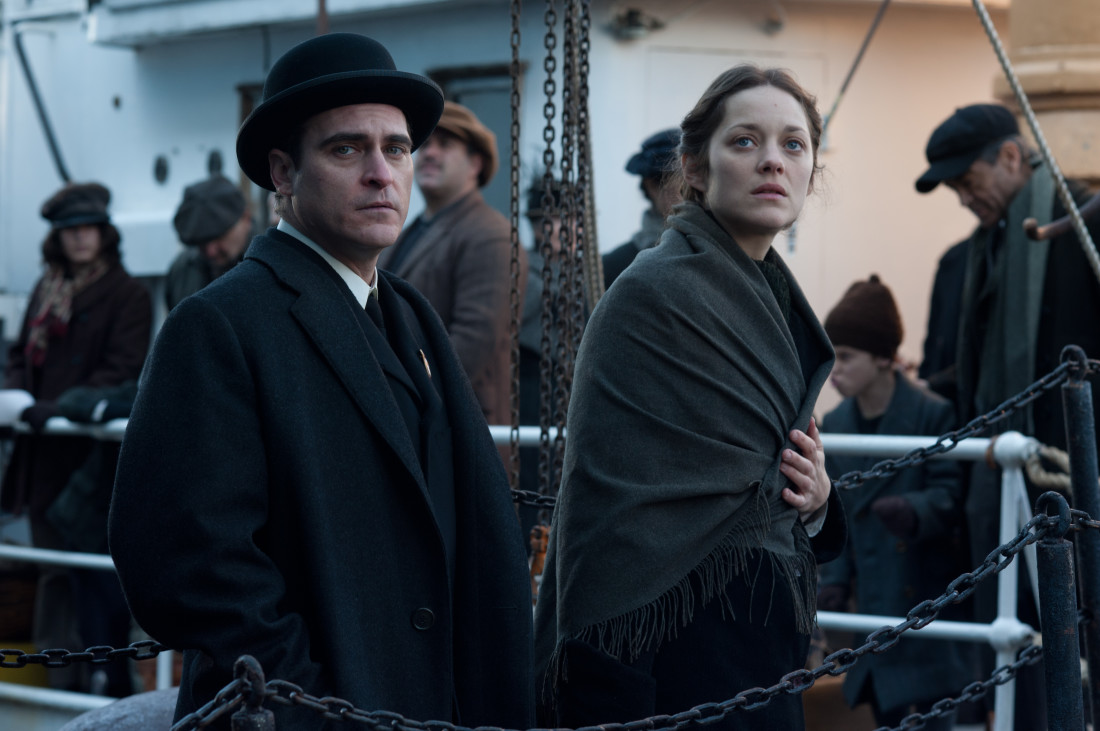
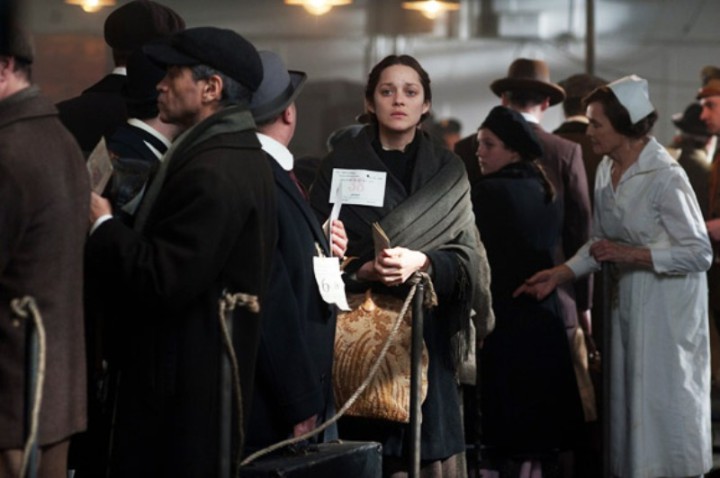
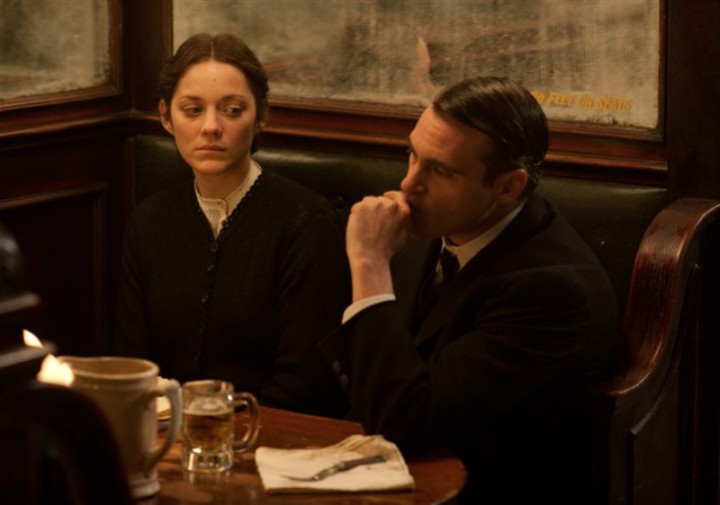
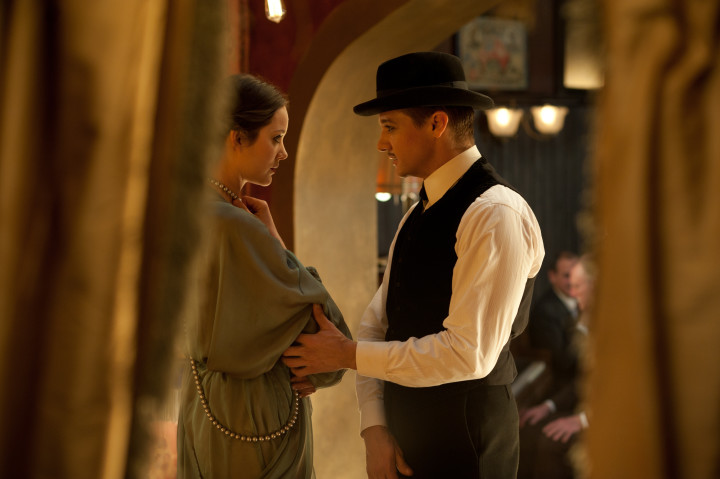
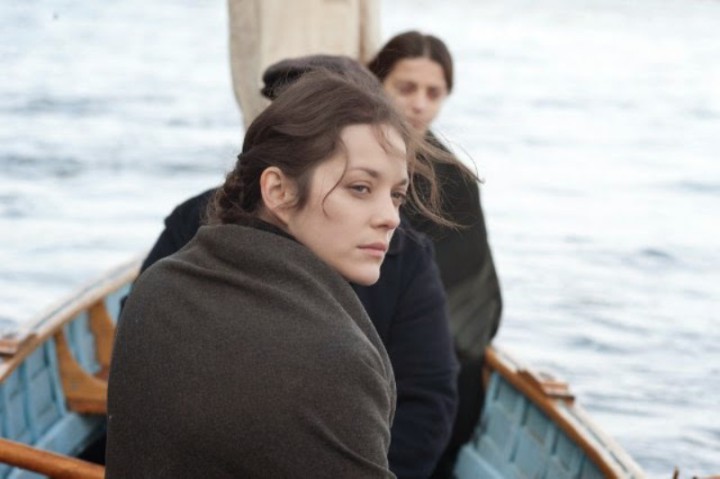
And the film’s final shot can join the short list of the truly great ending images.
I don’t want to spoil it for those who’ve yet to see it, but I can’t recall seeing that particular shot before. If I have, it wasn’t memorable enough to stay with me…plus Gray has the smarts to end the film there, which will make this one stick.
I don’t think I’ve seen one like it before, but I wasn’t looking for specifics. I was putting it up against things like the final shot of City Lights or The Devils — to name two obvious ones — as indelible images.
A Serious Man and Meek’s Cutoff are two recent ones where the stories could have run on yet ended with a perfect lasting image.
The Godfather, Psycho, The Shining, and North By Northwest are classic personal favorites and though I ultimately hate it, the only time I saw Cache I was nearly frantic scanning the final shot, looking for an answer only to not find one. Still, the frustration lingers whenever I think about it, which is probably what Haneke was after anyway.
Honestly, I don’t even remember what the last shoy was in . Ihave no idea what the last shot in The Godfather is. The Shining I kind of agree with, but it’s not a single final image. Similarly, are you really talking about the final — really, no shit, final — shot of North by Northwest? That’s just a train going into a tunnel. There’s a difference in knowing when to stop — on that level, my favorite may be the ending of the 1934 Little Miss Marker — and ending with an image — not a series of images — that haunts forever.
I’ll add the final shot of Mamoulian’s Queen Christina (1933), Glenda Jackson looking through the asylum bars from The Music Lovers (1970), and the last shot from 2001 (1968).
Isn’t the last shot in the Godfather him in the garden?
Well, that’s Brando’s last scene, but the baptism sequence falls after that.
I saw it once 39 years ago.
It’s of the door being shut as Kay looks on.
The best film of 2014 . Harvey Weinstein destroyed it’s Oscar chances. The last shot was transcendent .
The best film of 2014 . Harvey Weinstein destroyed it’s Oscar chances. The final shot is transcendent .